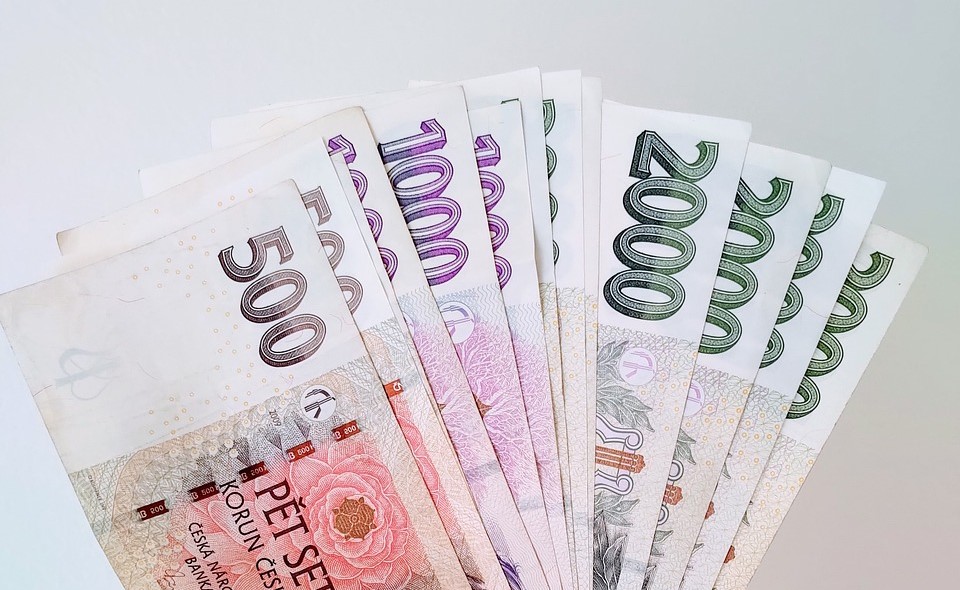Inflation has been a leitmotif in the Czech Republic’s economic narrative for the past three years, marking a tumultuous period for its citizens and policymakers alike. The consequences of a three-year inflationary surge saw prices skyrocket.
The latest data from January 2024, which analyses the dynamics of consumer prices, revealing both monthly fluctuations and annual trends, highlights the results of action taken by the government that seems to have led to a turnaround.
Analysts and the CNB were taken by surprise by the unexpectedly low January inflation. Indeed, in January 2024, the inflation rate measured by the increase in the consumer price index compared to the same month of the previous year, stood at 2.3%, representing the lowest level since February 2021.
However, if the cumulative effect of the entire hyperinflationary period over the past three years is taken into account, domestic prices have risen by a total of 24%.

Source graph: czso.cz
Wealth Trends in the Czech Republic
According to Eva Zamrazilová, the vice governor of the Czech National Bank (CNB), the impact of this inflationary episode varied significantly depending on the destination of the funds. Most affected were those who chose to leave their money in current accounts, who faced substantial losses.
Despite the seemingly dire financial landscape, Czech households’ net worth remained relatively stable and there was no significant decline in wealth. The latest available information indicates that Czech households’ net worth, comprising cash, funds in accounts, securities and real estate value, actually increased from 2019 to 2022 between 15 and 20 billion crowns. While the inflation was around 25%, household net worth surged by approximately 29 to 30% during the same period. This is a paradox that highlights the resilience of Czech households in the midst of economic difficulties.
Zamrazilová attributes this phenomenon to a confluence of factors, including the appreciation of real estate assets and strategic reallocation of savings, transferred from non-interest-bearing current accounts to higher-interest savings or investments. Many individuals made this strategic move to safeguard their funds against inflation. As inflation rose, the appreciation of people’s assets led to an increase of about 25% in household financial assets.
In terms of net worth, households that kept their funds in current accounts, where about 70% of their deposits reside, experienced a one-quarter decrease in their wealth, while we have seen how households that actively managed their assets suffered small losses. To describe, therefore, the situation as a loss of a quarter of people’s money is an oversimplification.
Is inflation returning to normal?
After two years of unbridled price growth, the current scenario is undergoing a change. In fact, after more than two years, the economic situation in the Czech Republic is returning to normal, with inflation targeting between 1% and 3%. As for the inflation target of 2% set by the CNB, it is believed that it will be reached in the spring, between March and April.
Zamrazilová emphasises that the pace of inflation reduction could not have been faster than it was, because if they had raised interest rates further in mid-2022, household consumption, already weak within the European landscape, would have fallen too much. Therefore, action was taken on the exchange rate.
In December, the Czech National Bank cut the interest rate by 0.25 per cent and in February continued with a further reduction of half a percentage point. Currently, rates are at 6.25%. The prospect of lower interest rates this year, due to low inflation, increases speculation among international traders, leading to a depreciation of the Czech koruna.
According to the deputy governor, the trend towards a gradual reduction in rates will only persist if the krone does not weaken excessively. Zamrazilová also stated that she is in favour of a milder reduction, as she believes that the risk of a delay of weeks or a few months is not so significant. She then goes on to argue that when the exchange rate is at weaker values than expected in the medium or long term, rates will be reduced more slowly.
Path to Economic Recovery for the Czech Republic
The road to economic recovery in the Czech Republic has been characterised by multiple challenges, exacerbated by the lingering effects of the COVID-19 pandemic and inflationary pressures. As policymakers try to come to terms with this complex landscape, projections and forecasts offer insights into the trajectory of the country’s economy.
Economic growth in the Czech Republic has been hindered by a restrictive monetary policy, and economic growth is expected to be +0.6% this year, despite the latest positive inflation figures. Despite this, it is possible that actual growth will be slightly higher so as to bring relief to households, with an increase in real incomes.
It is hoped that the labour market will remain stable, thus alleviating concerns about unemployment and encouraging people to increase their spending.
The Czech Republic is the last of the European countries that has not yet recovered to pre-pandemic growth levels. Definitive recovery is expected by 2025.
With cautious optimism and a proactive policy, the nation aims to regain its pre-pandemic growth trajectory, with a return to two per cent growth by next year.
As the Czech Republic strives to chart a course towards economic revival, the path ahead remains nuanced and multifaceted. Achieving sustainable growth requires a delicate balance between inflation management and income redistribution. In the midst of economic uncertainties, resilience emerges as a guiding principle.
Sources: https://www.seznamzpravy.cz/, https://www.czso.cz/, https://www.cnb.cz/, https://www.focus-economics.com/





